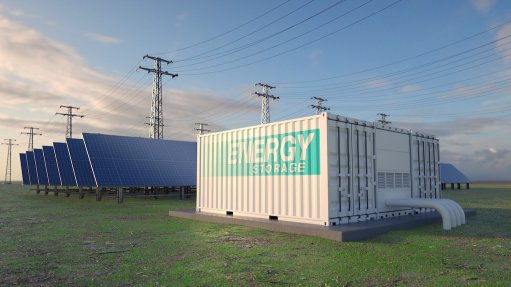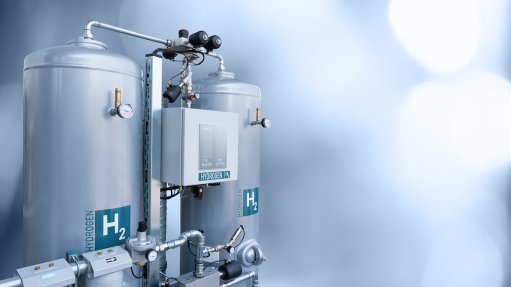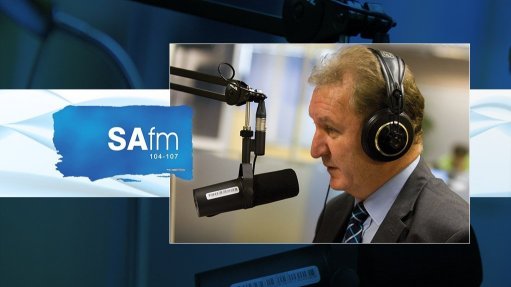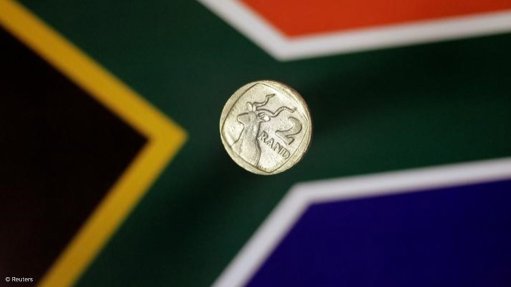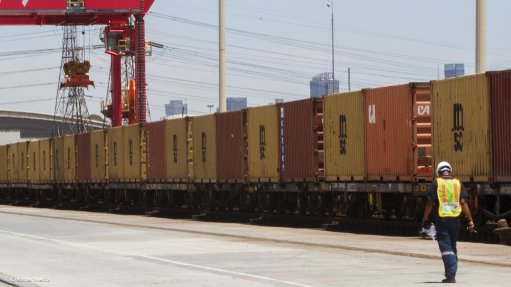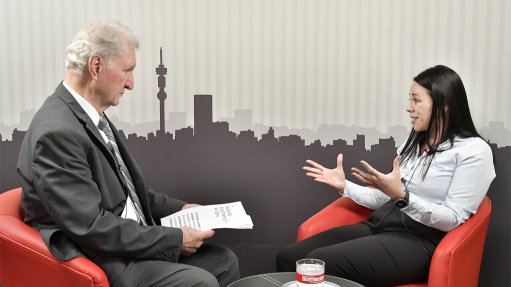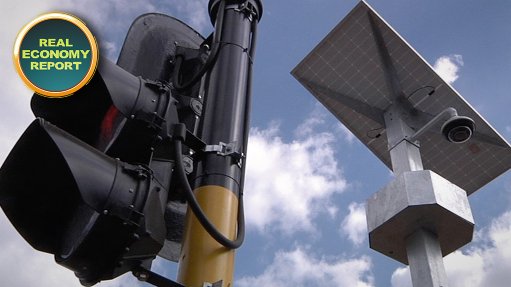Thungela launches fish breeding facility in wake of mine-affected water spill

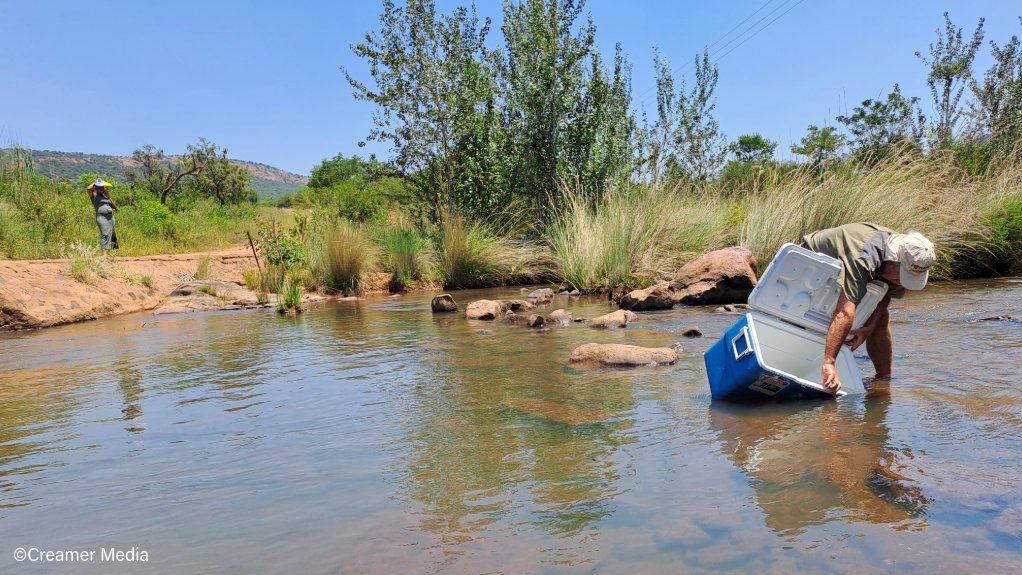
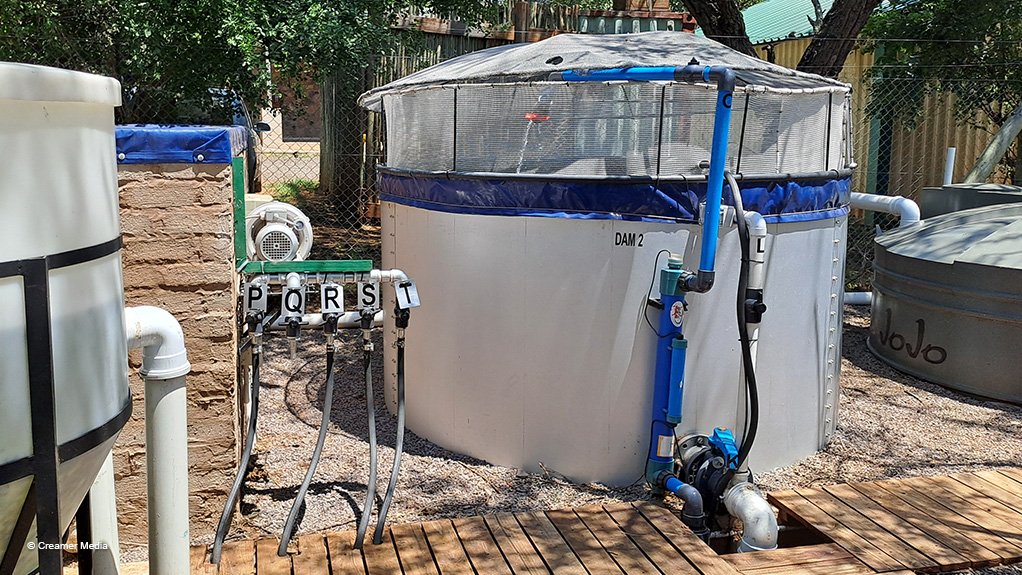
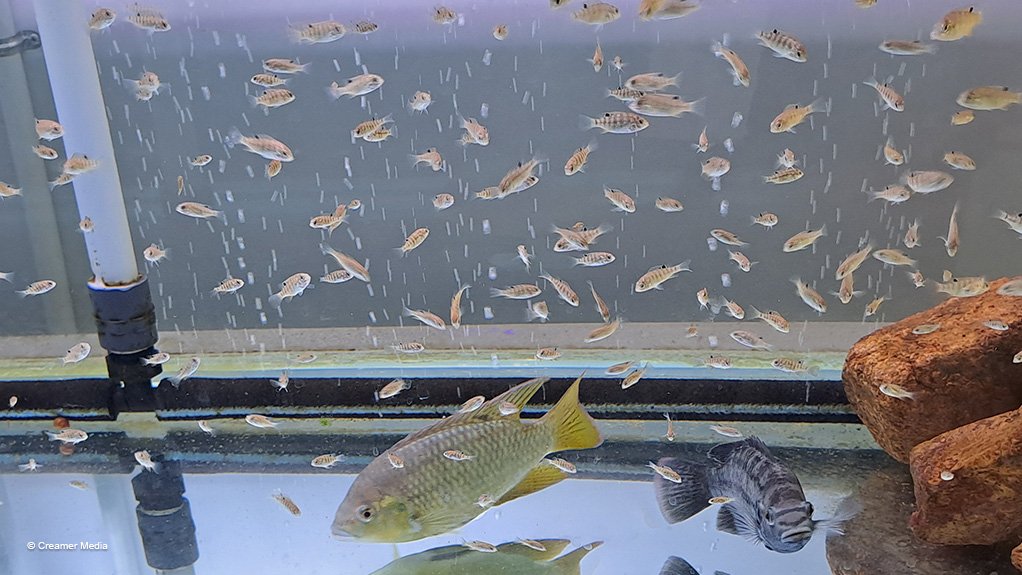
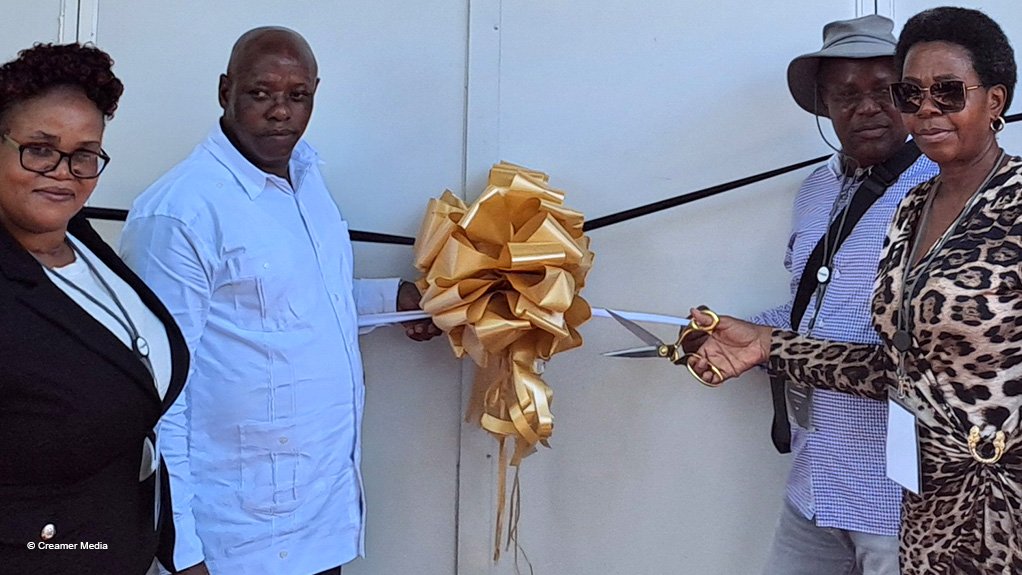
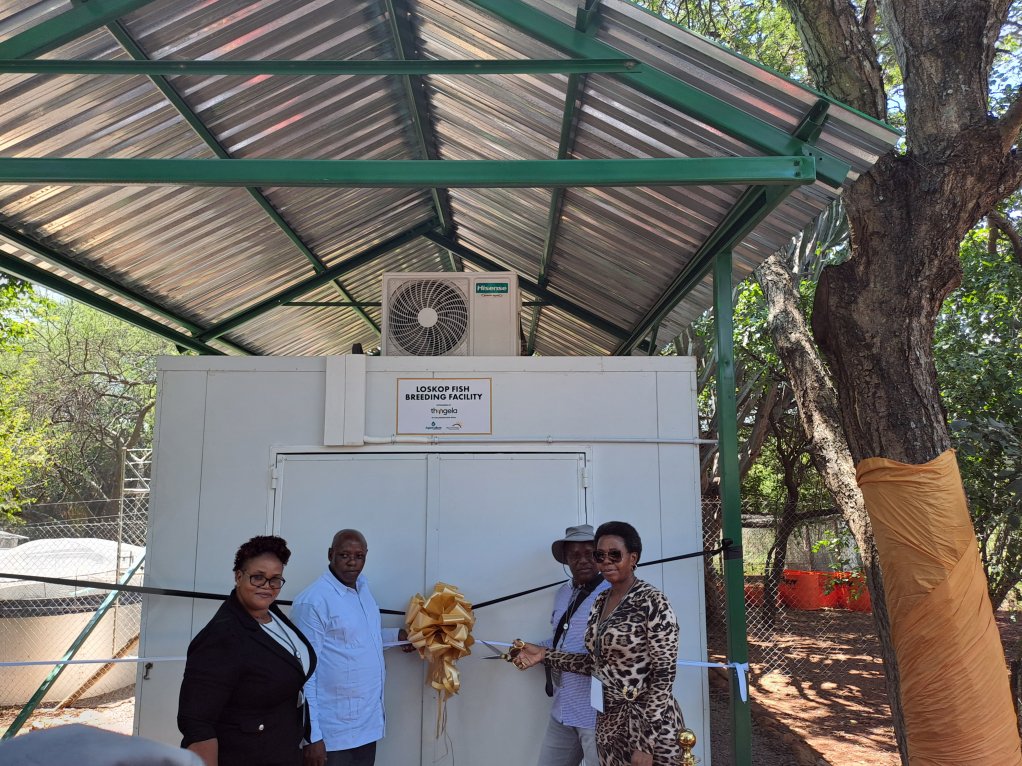
Photo by Creamer Media's Tasneem Bulbulia
One of the outside tanks
Photo by Creamer Media's Tasneem Bulbulia
One of the glass aquariums
Photo by Creamer Media's Tasneem Bulbulia
Ribbon cutting
Photo by Creamer Media's Tasneem Bulbulia
An image showing the ribbon cutting at Thungela's fish breeding facility
Photo by Creamer Media's Tasneem Bulbulia
Coal producer and exporter Thungela on February 23 launched a fish breeding facility at the Loskop Dam Nature Reserve, in Mpumalanga.
The facility was launched in line with efforts to restore aquatic life in the Wilge Olifants river catchment following the uncontrolled release of mine-affected water from the South shaft at the Khwezela colliery’s Komdraai site on February 14, 2022, which investigations have since attributed to illegal mining activities.
Preliminary investigations showed that a concrete seal, built at the shaft, which was last used in 1966, had failed in 2019. This caused the spread of a pollution plume that passed through the Wilge and Olifants rivers, eventually reaching the Loskop dam inlet and affecting an estimated 60 km of the river ecosystem, and completely decimating the entire fish population, as well as severely impacting on plants and microorganisms.
Further investigations showed the contribution of illegal mining activities to the event. It was indicated that damage to infrastructure, combined with theft of essential water treatment equipment, was the primary cause of the incident.
Speaking at the launch, Thungela CEO July Ndlovu explained that the company took responsibility for the incident and committed to rehabilitating the area affected by the overflow back to a condition that exceeded that prior to the event, as well as to minimising the chances of another incident occurring in the future.
As such, Thungela made a R1.8-million capital investment in the fish breeding facility and has committed a further R1.5-million to long-term monitoring of the rehabilitation process, as well as over R5-million to address illegal mining.
Thungela worked closely with the Mpumalanga Tourism and Parks Agency (MTPA), the Department of Water and Sanitation and aquatic scientists in the country to execute the rehabilitation plan.
One of the activities in this plan was to expedite the recovery of the fish population, restoring biodiversity in the affected area.
The water quality has now been ascertained to have returned to pre-incident levels, and a resurgence in macro invertebrate activity has been observed. Therefore, Thungela has determined that the fish can start being released into the area, to begin replenishing the stocks.
Two batches of fish – 100 in total – were released on February 23. This followed the recent release of about 600 fish.
The indoor breeding facility mimics the environment’s condition and has the capacity to breed several types of fish, housing 27 glass aquaria of varying sizes and six biofilters, each with individual temperature controls and filtration systems.
An external aquarium setup houses larger species ready for reintroduction. It includes three tanks equipped with comprehensive life support systems capable of sustaining up to 700 kg of fish.
The facility has been specifically designed to breed fish with optimal genetic quality sourced from local waters to expedite the ecological recovery process.
The facility is located close to the affected area, and the fish will be bred and released on a continuing basis, with ongoing monitoring. The facility will be handed over to the MTPA once the river system conditions are back to pre-incident levels, and it will assume responsibility for its operation.
It was indicated that it could take anywhere from five to ten years for this to materialise.
MTPA deputy chairperson Salome Sithole lauded this “sustainable” initiative and averred that rehabilitation of the area as awhole would benefit the surrounding communities, who were affected by the environmental repercussions of the spill, with the fish breeding facility benefitting tourism and activities such as fishing.
Thungela has also partnered with universities and other stakeholders to bolster research and the work being done at the facility.
Comments
Press Office
Announcements
What's On
Subscribe to improve your user experience...
Option 1 (equivalent of R125 a month):
Receive a weekly copy of Creamer Media's Engineering News & Mining Weekly magazine
(print copy for those in South Africa and e-magazine for those outside of South Africa)
Receive daily email newsletters
Access to full search results
Access archive of magazine back copies
Access to Projects in Progress
Access to ONE Research Report of your choice in PDF format
Option 2 (equivalent of R375 a month):
All benefits from Option 1
PLUS
Access to Creamer Media's Research Channel Africa for ALL Research Reports, in PDF format, on various industrial and mining sectors
including Electricity; Water; Energy Transition; Hydrogen; Roads, Rail and Ports; Coal; Gold; Platinum; Battery Metals; etc.
Already a subscriber?
Forgotten your password?
Receive weekly copy of Creamer Media's Engineering News & Mining Weekly magazine (print copy for those in South Africa and e-magazine for those outside of South Africa)
➕
Recieve daily email newsletters
➕
Access to full search results
➕
Access archive of magazine back copies
➕
Access to Projects in Progress
➕
Access to ONE Research Report of your choice in PDF format
RESEARCH CHANNEL AFRICA
R4500 (equivalent of R375 a month)
SUBSCRIBEAll benefits from Option 1
➕
Access to Creamer Media's Research Channel Africa for ALL Research Reports on various industrial and mining sectors, in PDF format, including on:
Electricity
➕
Water
➕
Energy Transition
➕
Hydrogen
➕
Roads, Rail and Ports
➕
Coal
➕
Gold
➕
Platinum
➕
Battery Metals
➕
etc.
Receive all benefits from Option 1 or Option 2 delivered to numerous people at your company
➕
Multiple User names and Passwords for simultaneous log-ins
➕
Intranet integration access to all in your organisation











